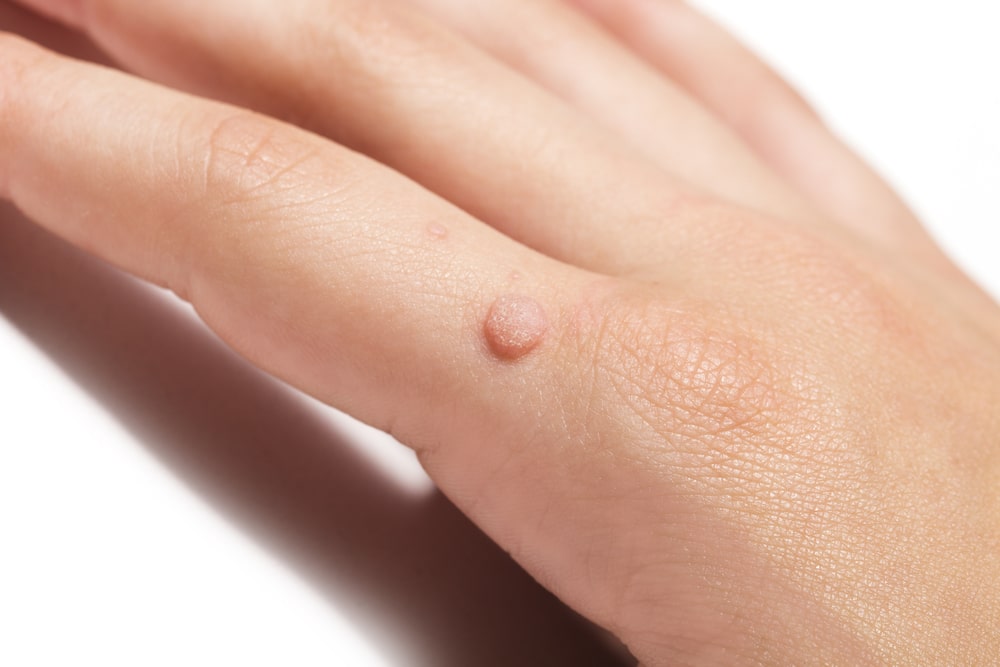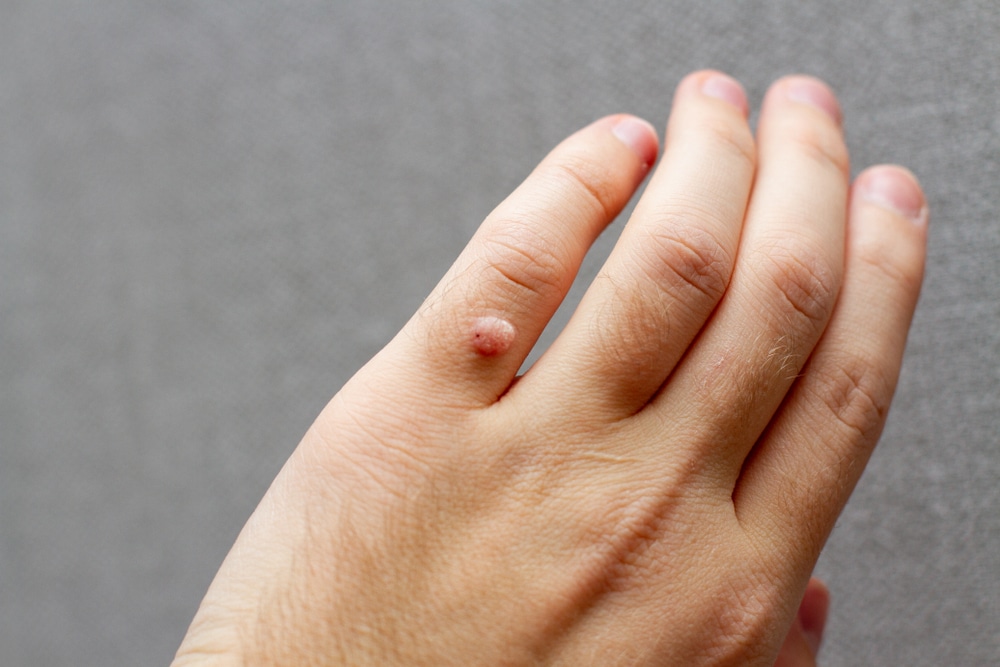Warts Removal in Tampa & Dade City, FL

Warts can be stubborn, unsightly, and sometimes painful, but you don't have to live with them forever. At Florida Westcoast Skin and Cancer Center, led by Dr. Michael A. Scannon, a board-certified dermatologist who has practiced in Tampa and Dade City since January 1982, we offer various wart removal treatments to increase your comfort and confidence.
It doesn't matter if you have common warts, plantar warts, or recurrent growths. Our safe and proven clinical dermatology solutions will restore your skin's health and appearance.
What Are Warts?
Warts are a common skin condition caused by infection by one or more strains of human papillomavirus (HPV). Many different types of warts can affect individuals of all ages and skin types.

Most warts, especially those most commonly seen in children, disappear independently. Troublesome warts can also be removed or treated at our Tampa and Dade City offices.
Who is Most at Risk for Developing Warts?
Patients with weakened immune systems, such as those with HIV or other immune disorders or those who have had organ transplants, are particularly susceptible to warts. Since warts are contagious through direct skin contact, strict personal hygiene can help to prevent their spread. This includes avoidance of shared personal items, such as towels or razors.
Types of Warts
Warts appear as small skin growths, flat or slightly raised, on the skin's surface. They can vary in coloration. Usually, warts can be diagnosed by a simple medical examination, but occasionally, a biopsy may be necessary to distinguish them from particular kinds of skin cancer. Different types of warts appear on different body parts and vary in appearance. Some of the most well-known varieties of warts are:
- Common warts, which usually appear on the fingers or toes
- Flat warts, which often affect the face, arms, or legs
- Plantar warts, which grow on the soles of the feet
- Filiform warts, which grow on the face or neck
- Periungual warts, which grow around or under toenails and fingernails
Common Wart Treatments

While most varieties of warts are benign, some may be itchy, painful, or embarrassing. Most can be treated with medications like salicylic acid, cantharidin, or cryotherapy, a process of freezing with liquid nitrogen. In especially resistant instances, warts may require laser surgery or surgical excision with a scalpel.
FAQs
When Should I See a Doctor for Wart Removal?
You should consider seeing a doctor for wart removal if:
- The wart is painful or bleeding: If your wart causes discomfort, bleeds, or has an unusual color, a doctor should evaluate it.
- The wart is growing or changing in appearance: Rapid growth or color changes could indicate a more serious skin condition.
- Home solutions aren't working: Professional therapies may be necessary if over-the-counter products fail to remove the wart after a few weeks.
- The wart spreads: If new warts occur around the original one, medical intervention can prevent further spread.
- The wart is on a sensitive area: Warts on the face, genitals, or under the nails may require specialized care.
- You have a weakened immune system: Conditions like diabetes or immune disorders can make warts more persistent and harder to treat.
Does Wart Removal Hurt?
Wart removal can cause some mild discomfort. However, the pain level depends on the method used and the wart's location:
- Cryotherapy: May cause a stinging or burning sensation during and after treatment. There may be some blistering as well.
- Electrosurgery: May involve local anesthesia to minimize pain.
- Laser Therapy: May cause a sharp, burning sensation. Some swelling and discomfort can follow.
- Surgical Removal: Generally involves numbing the area with local anesthesia before cutting out the wart. Mild soreness can occur afterward.
- Topical Products: Usually cause little to no pain but may result in slight irritation or peeling over time.
Can Warts Come Back After Treatment?
In most cases, treatment is permanent, and warts do not return. However, because HPV causes warts, the virus can remain in the skin even after the growth is removed. This means that new warts may still appear later.
The likelihood of warts coming back after treatment depends on other factors, including:
- Incomplete Wart Removal: If any part of the wart remains, it can regrow over time.
- Weakened Immune System: Warts may return if your immune system isn't strong enough to fight off the virus.
- Frequent Skin Contact: Touching contaminated surfaces, sharing personal items, or picking at warts can lead to re-infection.
- High-Risk Areas: Warts on hands, feet, and other high-friction areas are more likely to recur.
Why Choose Florida Westcoast Skin and Cancer Center?
Our expert team at Florida Westcoast Skin and Cancer Center delivers research-backed and effective wart removal treatments in Tampa and Dade City.
Our practice, led by Dr. Michael A. Scannon, a board-certified dermatologist with over 40 years of experience, and Dr. Stefanie Altmann, offers personalized support for patients of all ages. With a skilled physician assistant and facial specialist on staff, we provide clinical, cosmetic, and surgical solutions tailored to your needs.
Our 1,400+ five-star reviews reflect our commitment to exceptional patient care. Choose us for trusted expertise, advanced therapies, and outstanding results.
Schedule Your Consultation Today!
If you have stubborn or recurrent warts, call Florida West Coast Skin and Cancer Center at 813-877-4811 to schedule a consultation with one of our dermatologists today! We have locations in Tampa and Dade City and serve all nearby areas.
